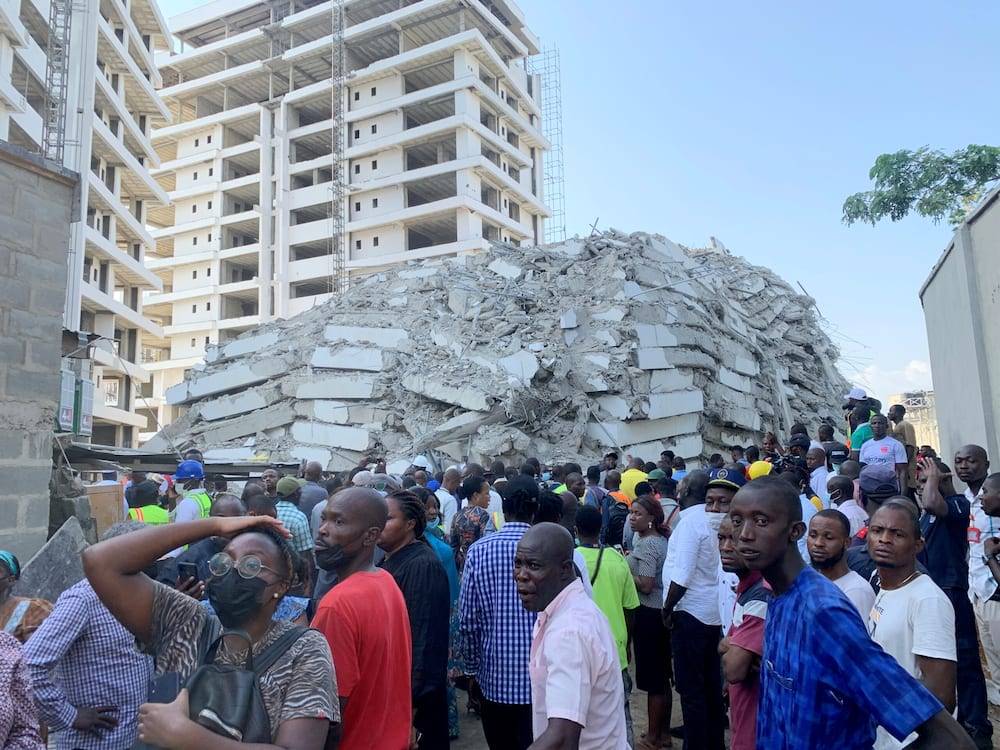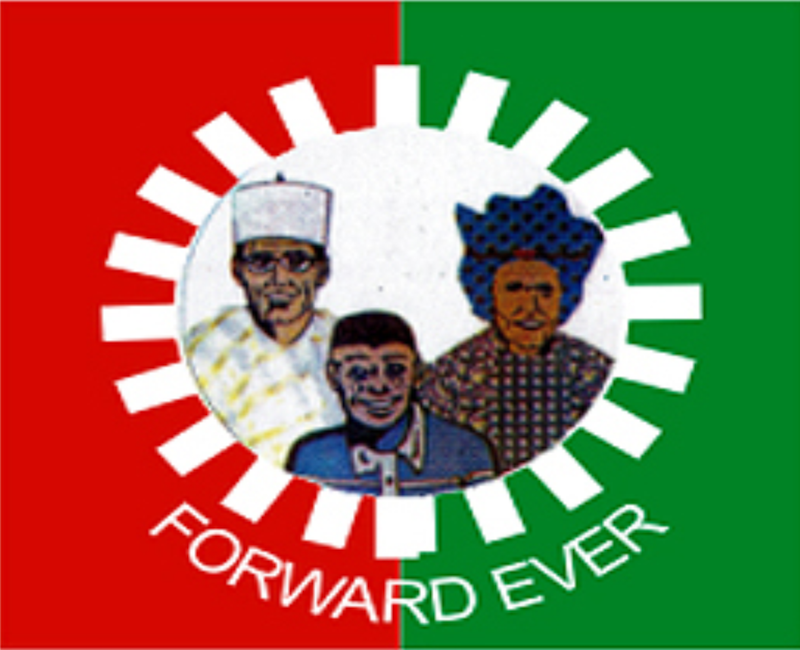GROpinion
[OPINION] Ikoyi Tragedy and Casual Bigotry Against Yoruba Muslims


Amid the grief of the heartrendingly tragic collapse of the 21-storey luxury apartment building in Ikoyi, Lagos, a sadly familiar, barely acknowledged but nonetheless insidiously widespread anti-Muslim bigotry in Yoruba land came to light.
A Yoruba Muslim by the name of Adebowale Sikiru revealed in an interview with a YouTube news channel called AN 24 that he was rejected for a job at the Ikoyi construction site because of his Muslim faith. He applied for the position of a site engineer and was found qualified enough to deserve being invited for an interview by Femi Osibona, the MD of Fourscore Homes, the firm that managed the construction of the ill-fated multi-storey building.
After the interview, Sikiru said Osibona asked him what church he attended, and he responded that he was a Muslim. “Ah, I can’t work with a Muslim,” Sikiru quoted Osibona to have said. Osibona reportedly said in Yoruba that he couldn’t work with someone whose response to his chant of “Praise God!” would be “Alhamdulillah!”
When Sikiru told him of his struggles with getting gainfully employed after graduation, Osibona also reportedly said it was probably because of his Muslim faith that he was not “able to make a headway” in life. “He said that in front of even the bricklayers” and many others at the site, Sikiru said.
Sikiru left the site sad, humiliated, and deflated, but a friend of his who brought his attention to the job he had interviewed for called him while he was on his way back home. The friend wanted to find out if he was trapped in the building that had collapsed a few hours earlier. That was the time it dawned on Sikiru that his rejection and humiliation on account of his faith ironically saved him from death.
Unfortunately, Osibona died in the collapsed building, so we have no way of getting his own side of the story. Nonetheless, it doesn’t seem plausible that Sikiru, who didn’t even come across as a devout Muslim during his interview with AN 24, would just wake up and invent the encounter with Osibona. Plus, videos that have emerged of Osibona’s meretriciously outward displays of his Christianity and evangelical exhibitionism are consistent with Sikiru’s account of his encounter with him.
More than that, though, it merely instantiates the casual bigotry that Yoruba Muslims routinely contend with in their own natal region on account of their faith, which I’ve known for years.
I followed the social media conversations that Sikiru’s encounter with Osibona triggered among Yoruba Muslims and came away with the distinct impression that many Yoruba Muslims are seething with frustration and deep-seated inferiority complex on account of their faith-based systematic exclusion and demonization, but they are grinning and bearing their fate in smoldering silence out of social pressure, out of anxieties about social ostracism. We call this the spectacle of the spiral of silence in communication theory.
A Facebook friend of mine by the name of Ganiyu Oludare Lasisi who now lives and works in Scotland narrated how he was denied a job to teach high school geography in his hometown of Abeokuta because of his Muslim faith. He has an Upper Second-Class honors degree in Geography and a distinction in the subject in his “O” level. But “on the day of the interview,” Lasisi said, “the school owner/founder (also a pastor) rejected me because of my Muslim name (Ganiyu). I was so sad and angry then. He even suggested that I can convert to Christianity and change Ganiyu to Gabriel.”
In their safe spaces, multiple Yoruba Muslims shared similar such anecdotal encounters of causal bigotry. They say they are habitually ridiculed for their faith, sneered at for their Muslim sartorial choices, alienated and rhetorically marginalized, and outright denied opportunities by people with whom they share the same ethnicity. Several of them are forced to convert to Christianity or hide their faith to fit in.
Just the other day, on November 3, Premium Times published a story of the appointment of a 45-year-old professor of geo-technical engineering by the name of Afeez Bello as acting Vice Chancellor of the Osun State University in Osogbo. The photo of Bello that the paper used to illustrate the story was of a heavily bearded man with a Muslim felt hat.
Apparently, that sartorial symbol of male Muslim identity was like a red rag to a bull among Christian Facebook commenters, most of whom were Yoruba. The man was called “Boko Haram,” “Shekau’s reincarnation,” a “fanatic,” and all sorts of other cruel slanders and unwarrantedly unmentionable vituperations. I was emotionally distraught after reading a sample of the comments. I inflicted self-torture on myself.
The truth is that the famed religious ecumenicalism and tolerance of the Yoruba people is often achieved at the expense of Yoruba Muslims. It is they, and not their Christian brothers and sisters, who must always perform religious tolerance. (In his interview with the YouTube news channel, even Sikiru felt compelled to say that 95 percent of his friends are Christians and that he hadn’t closed off the possibility that he could convert to Christianity at some point in his life.)
It is Yoruba Muslims who are required to downplay or hide their religious identity in the interest of an overarching Yoruba identity because, over the last few decades, Christianity has been rhetorically constituted in the popular imagination as a core constituent in the construction of Yoruba identity. That’s why prominent Yoruba Muslims almost always have to invoke their connection to Christianity to fit in.
The late Gani Fawehinmi always had a need to show that his wife was a Christian. Bola Ahmed Tinubu has a need to strategically let it be known that his wife isn’t only a Christian but a deacon. House of Representatives Speaker Olufemi Hakeem Gbajabiamila concealed his Muslim identity until he needed the support of the Muslim North to become Speaker. After the fact, his handlers played up the fact that his wife and his mother are Christians.
Prince Bola Ajibola, one of Africa’s finest jurists who happens to be a devout Muslim, doesn’t openly bear Abduljabar, his Muslim name—unlike his father who bore Abdulsalam as his first name—perhaps, not being married to a Christian, it was his only way to reassure his Christian Yoruba brothers and sisters that he is Yoruba. Yet, he is so strong in his Muslim faith that he established the Crescent University, one of Nigeria’s first private Islamic universities, in his hometown of Abeokuta.
Although Muslims constitute a numerical majority in Yoruba land, they are a symbolic minority and are perpetually put in a position to prove their “Yorubaness.” For instance, in the heat of the debate over the formation of Amotekun to ward off “Fulani bandits,” Bolaji Aluko, who was a professor here in the United States and who is now a prominent Ekiti State government official, used the moment to stealthily alienate Yoruba Muslims in his state.
In a January 25, 2021 article titled “Sunday Musings: On the Matter of Farmer-Herdsmen Clashes in Ekiti State,” he wrote, among other things, “Our Muslim Yoruba citizens must decide whether the Umma principle of brotherhood is greater that [sic] the collective security of our Yoruba citizenry.” As I told him then, there are at least four ways in which he was wrong.
First, he exoticized, needlessly put Yoruba Muslims on the spot, and created a false binary between being Muslim and being Yoruba, even though (nominal) Muslims constitute the majority in Oyo, Osun, Ogun, and Lagos states. Islam has been in Yorubaland since at least the 1400s. The first mosque was built in Oyo-Ile, the ancient capital of the Oyo Empire, in 1550, that is, centuries before colonialism.
Second, Yoruba Muslims are themselves victims of the homicidal fury of Fulani brigands. If being Muslim hasn’t immunized Yoruba Muslims against sanguinary clashes with Fulani people, why should they be singled out as people who are suspect, as people who might betray non-Muslim Yoruba people to the Fulani out of “the Umma principle of brotherhood,” which, by the way, is nonsensical, meaningless verbiage?
Third, Aluko’s claim assumes that all Fulani brigands are Muslims (they are NOT) and that they are committing their crimes on behalf of Islam, which would predispose them spare Yoruba Muslims in the spirit of “the Umma principle of brotherhood.” But nothing can be more ignorant and bigoted than that.
If “Umma principle of brotherhood” (whatever the heck that means) were a thing, Muslims in Katsina, Zamfara, Kaduna, Niger, and elsewhere (who are also incidentally Fulani, Hausa, or “Hausa-Fulani”) wouldn’t be killed, kidnapped, and overawed by criminally bloodthirsty Fulani brigands. Mosques wouldn’t be invaded, and imams and worshipers kidnapped and murdered. That should tell anyone that this isn’t about religion or even ethnicity.
Sadly, Yoruba Muslims have no voice and seem to have accepted their fate with listless resignation. Not being a Yoruba myself, I know I will be viciously attacked by the people who lubricate and enjoy the current hegemonic high ground that puts Yoruba Muslims at the lower end of the totem pole, but I am not one to shy away from telling the truth because of fear of attacks. I resist injustice no matter who the victims or the perpetrators are.
Farooq A. Kperogi
-



 News3 days ago
News3 days agoNiger State Attack: Mohamed Malick Fall Calls for Protection of Civilians, Schools
-



 Startups2 days ago
Startups2 days agoMGX Research Founder Nnaemeka Ani Outlines a New Era of African Innovation
-



 GRPolitics1 day ago
GRPolitics1 day agoINEC Clarifies Claims on Labour Party Access Code for 2026 FCT Area Council Elections
-



 News1 day ago
News1 day agoKidnappers kill Abuja-based Lawyer Princess Nwamaka Chigbo






